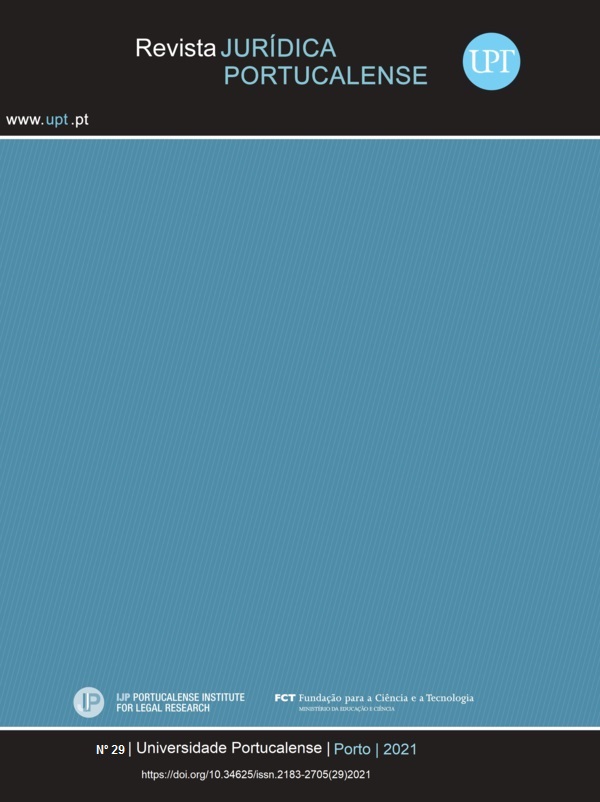Some taxation options granted to the non- resident taxpayer under the IRS: analysis of the legislator’s motivation and the legal-fiscal consequences
Keywords:
personal income tax, taxation options, tax planningAbstract
The Personal Income Tax Code contains numerous legitimate taxation options, which are available to the taxable person, due to the inherent legal and fiscal freedom, and which allow them to achieve the much-desired tax savings. In this sense, we intend to list and develop some of the options granted to the taxable person residing in another Member State of the European Union or the European Economic Area, following an approach that focuses not only on clarifying the option itself and the type of taxable person, as in the motivation outlined by the tax legislator in the introduction of these alternatives and the underlying advantages and disadvantages.
References
AA.VV. (2009), Relatório do Grupo para o Estudo da Política Fiscal -Competitividade, Eficiência e Justiça do Sistema Fiscal, Ministério das Finanças e da Administração Pública.
Azevedo, M. E. - “As Reformas Fiscais Portuguesas do Século XX - Um enfoque analítico”, Revista Lusíada, Direito n.º 8/9, (2011), pp. 161-236.
Corte-Real, C. P. - “Imposto Único - Tipo de Imposto a adotar”, Ciência e Técnica Fiscal, n.º 126, CEJ, (1983), pp. 7-55.
COURINHA, G. L. (2015) - A residência no Direito Internacional: do Abuso Subjetivo de Convenções, Coimbra: Almedina.
DOURADO, A. P. (2010) - Lições de Direito Fiscal Europeu: Tributação direta, Coimbra Editora.
FAUSTINO, M. - “Os Residentes no Imposto sobre o Rendimento Pessoal (IRS) Português”, Ciência e Técnica Fiscal, n.º 424 (2009).
FAVEIRO, V. D. A. (2002) - O Estatuto do Contribuinte - A pessoa do contribuinte no Estado Social de Direito, Coimbra: Coimbra Editora.
FERREIRA, E. P. (2005) - Prefácio a 15 anos da Reforma Fiscal de 1988/89, Coimbra: Almedina.
Ferreira, R. F. - “O novo regime fiscal dos não residentes”, Diário Económico, publicado em 15 de janeiro de 2009.
FERREIRA, R.F. et al., “A tributação das mais-valias imobiliárias de não residentes”, Newsletter n.º 23/19: RFF e Associados, Sociedade de Advogados, SP, RL, https://www.rffadvogados.com/xms/files/KNOW_HOW/Newsletters/2019/05-Maio/RFFa_-_AS_MAIS-VALIAS_IMOBILIARIAS_DE_NaO_RESIDENTES.pdf, consultado em 20/02/2020.
Leite de Campos, D. - “As três fases de princípios fundamentantes do direito tributário”, Revista da Ordem dos Advogados, Vol.I, Ano 67, janeiro/2007. https://portal.oa.pt/publicacoes/revista/ano-2007/ano-67-vol-i-jan-2007/doutrina/diogo-leite-de-campos-as-tres-fases-de-principios-fundamentantes-do-direito-tributario/ , consultado em 20/02/2020.
MAGNO, H. G. (2019) - A Residência Fiscal das Pessoas Singulares, Porto: Vida Económica.
MORAIS, R. D. (2014) - Sobre o IRS. 3.ª Edição, Coimbra: Almedina.
NABAIS, J. C. (1998) - O Dever Fundamental de Pagar Impostos. Coleção Teses, Coimbra: Almedina.
NABAIS, J. C. (2015) - Direito Fiscal. 8a ed., Coimbra: Almedina.
NOGUEIRA, J. F. P. (2010) - Direito Fiscal Europeu - O Paradigma da Proporcionalidade: A proporcionalidade como critério central da compatibilidade de normas tributárias internas com as liberdades fundamentais, Coimbra Editora.
NOVAIS, J. R. (2004) - Os Princípios Constitucionais Estruturantes da República Portuguesa, Coimbra: Coimbra Editora.
PINHEIRO, G. (1998) - A Fiscalidade Directa na União Europeia, Estudo e Monografias, Universidade Católica Portuguesa.
PEREIRA, C. R. e SAMPAIO, R. (2015) - “A complexidade das opções de tributação em sede de IRS e a justiça fiscal”, in Desafios Tributários, Vida Económica.
PEREIRA, P. R. (2018) - Manual de IRS, Coimbra: Almedina.
PEREIRA, P. R. (2010) - Princípios do Direito Fiscal Internacional - Do Paradigma Clássico ao Direito Fiscal Europeu, Coimbra: Almedina, Reimpressão 2016.
RIBEIRO, J. S. (2018) - Direito Fiscal da União Europeia - Tributação direta, Coimbra: Almedina.
ROCHA, J. F. D. (2012) - “Direito Fiscal e autonomia da vontade. Do Direito à livre planificação fiscal”, in Estudos em Homenagem ao Professor Doutor Heinrich Ewald Hörster. Coimbra: Almedina.
SANCHES, J.L.S. (1991) - Princípios Estruturantes da Reforma Fiscal. Lisboa: Edifisco.
VASQUES, S. (2015) - Manual de Direito Fiscal. Coimbra: Almedina.
XAVIER, A. (2018) - Direito Tributário Internacional. 2a ed., Coimbra: Almedina.
Lista Jurisprudencial
A. União Europeia
C-120/78, Ac. Cassis de Dijon, de 20 de fevereiro de 1979.
C-80/94, Ac. Wielockx, de 11 de agosto de 1994.
C-279/93, Ac. Schumacker, 14 de maio de 1995.
C-391/97, Ac. Gschwind, 14 de setembro de 1999.
C-234/01, Ac. Gerritse, 12 de junho de 2003.
C-222/04, Ac. Cassa di Risparmio di Firenze, 10 de janeiro de 2006.
C-345/04, Ac. Centro Equestre da Lezíria Grande, Lda, de 15 de fevereiro de 2007.
C-443/06, Ac. Hollman, 11 de outubro de 2007.
C-440/08, Ac. Gielen, 18 de março de 2010.
C-105/08, Ac. Comissão Europeia vs República Portuguesa, 17 de junho de 2010.
B. Nacional
Processo n.º 01031/10, Ac. do STA, 22 de março de 2011.
Processo n.º 0298/13, Ac. do STA, 28 de novembro de 2011.
Decisão CAAD, Processo n.º 45/2012-T, de 5 de junho de 2012.
Processo n.º 01371/12, Ac. do STA, 30 de abril de 2013.
Decisão CAAD, Processo n.º 127/2012-T, de 14 de maio de 2013.
Decisão CAAD, Processo n.º 748/2915-T, de 27 de julho de 2016.
Decisão CAAD, Processo n.º 644/2017-T, de 30 de maio de 2017.
Downloads
Published
How to Cite
Issue
Section
License
Authors who published in the journal agree to the following terms:
- The Authors grant the Journal the right of first publication, and other non-exclusive publishing rights, licensed under the Creative Commons Attribution License which allows the sharing of work with recognition of its initial publication in this journal.
- Authors are able to take on additional contracts separately, non-exclusive distribution of the version of the paper published in this journal (ex .: publish in an institutional repository or as a chapter in a book), with an acknowledgement of its initial publication in this journal.
- Authors are permitted and encouraged to post and distribute their work online (eg .: in institutional repositories or on their website) at any point before or during the submission process, as it can lead to productive exchanges, as well as increase the impact and the citation of published work (See The Effect of Open Access).
RJP does not apply submission, publication or any other fees of any nature. Its articles are open access, with the goal of disseminating scientific knowledge and the debate of legal topics in the area of Legal Sciences.






